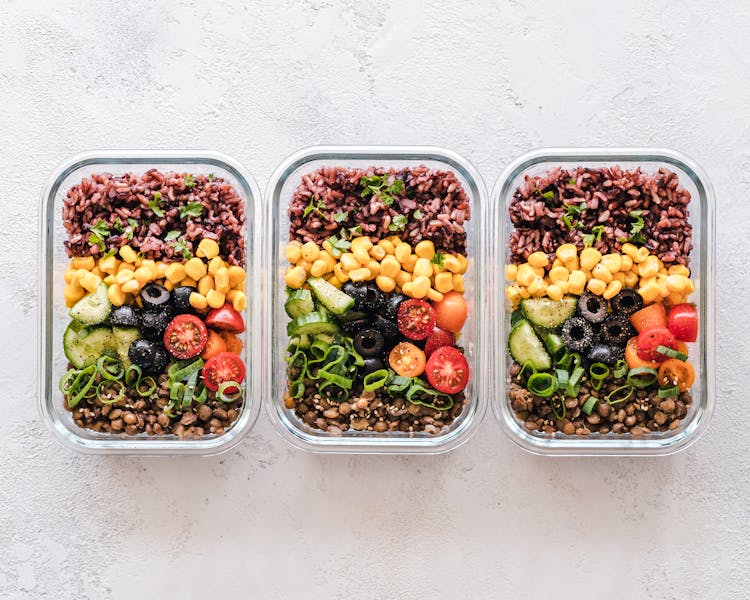All Categories
Featured
Table of Contents
TLDR Summary:
- 🧘♀️ Mindful meal planning promotes awareness in eating practices.
- 🍽️ Focus on nourishing your body with balanced nutrition.
- 🥗 Integrate sensory experiences to enhance meal enjoyment.
- 💚 Reduce emotional eating through mindful awareness.
- 📅 Build a sustainable meal planning routine for lasting success.
Mindful Eating and Its Positive Impact
Mindful meal planning is not just a method for organizing meals; it fosters a profound connection between the eater and the nutritional experience. This approach allows individuals to engage in the process of eating through a lens of compassion and understanding. By focusing on the way food is not only consumed but appreciated, individuals can fundamentally alter their eating habits, yielding positive health outcomes. Through mindfulness, eaters learn to savor their food, recognizing its taste, texture, and aroma, which in turn can lead to decreased portion sizes and improved digestion. Traditional diets often emphasize strict rules and calorie counting that promote negative associations with food. In contrast, mindful meal planning aims to heal the relationship with food by prioritizing quality over quantity.
One significant benefit of mindful eating is the reduction of stress during meals. When individuals cultivate a calm environment and focus on the experience of eating, they are less prone to anxiety related to food. This practice breaks the cycle of emotional eating, where food is used as a means to cope with feelings instead of merely nourishing the body. Mindful meal planning encourages the discernment of true hunger cues versus emotional triggers, allowing individuals to respond appropriately instead of reactively.
The Mindful Meal Planning Approach
To embrace mindful meal planning, it is essential to begin with small, achievable steps. One effective method is to dedicate one meal each day to practice mindfulness. During this time, eliminate distractions such as mobile devices or television, allowing yourself to fully engage with the meal at hand. When planning meals, include ingredients that excite your palate and provide nourishment. Opt for fresh vegetables, whole grains, and lean proteins that promote overall well-being.
A valuable resource for those embarking on this journey is The Large Meal Prep Planner, which supports organized planning and conscious grocery shopping. This tool helps to streamline the meal prep process, ensuring that nutritious foods are on hand while minimizing food waste. As you progress, consider consulting with a registered dietitian who specializes in mindful eating to tailor your meal plans according to your individual needs. Regular follow-ups provide opportunities for growth and adjustment based on your evolving preferences and health goals.
Enhance Your Nutrition with Mindful Choices
As one develops the skills associated with mindful meal planning, it becomes evident that food preparation is an integral part. Focusing on the process can transform cooking from a task into a ritual. From selecting ingredients to chopping and seasoning, being present during food preparation can heighten appreciation for the meal. Incorporating practices such as herbal tea brewing or composting can further enhance this experience, contributing to a mindset of gratitude.
While meal planning, consider the guidance provided in mindful meal planning articles that offer insights into crafting recipes designed for both taste and nutritional value. Using balanced recipes from resources such as Meal Prep for Weight Loss: Weekly Plans and Recipes or Skinnytaste Meal Prep can keep your meals general yet fulfilling.
Transformations through Mindful Eating
The beauty of mindful meal planning lies in its practical application. Many individuals have attested to their success through personal stories. One example is Barbara, a college student who struggled with her eating habits. After adopting mindful meal planning techniques, she reported feeling more in control of her choices and experienced a substantial decrease in binge eating episodes. By planning her meals in advance and taking the time to enjoy each bite, Barbara transformed her relationship with food and enhanced her overall well-being.
For those looking to replicate such success, consider utilizing mindfulness resources. Visit Mindful Eating 101 for a beginner’s guide that outlines key principles. This piece not only provides actionable advice but also features strategies to integrate mindfulness into your eating routine. Regular practice has shown to create lasting behavioral changes, promoting healthier lifestyle choices.
Nutritional Advice for Balanced Meal Planning
To achieve a balanced meal plan, it is vital to understand the components that should fill your plate. Each meal should include a variety of food groups, ensuring you receive adequate vitamins and minerals. Focus on incorporating whole foods—fruits, vegetables, lean proteins, healthy fats, and grains. Not only does this variety cater to nutritional needs, but it is also instrumental in maintaining interest in meals, which is crucial for a sustainable mindful eating approach.
The Centers for Disease Control and Prevention emphasize the importance of making healthy eating decisions for personal well-being. Following health guidelines can further aid in effective meal planning. Pairing systematic meal planning with an intuitive nutrition approach fosters a harmonious relationship between the mind and body—leading to lasting health benefits.
What is mindful meal planning?
How can I start practicing mindful meal planning?

Gain full perspective here
Table of Contents
Latest Posts
Cutting the Cord: Your Guide to Free Streaming Options
The Art of Mindful Meal Planning: A Holistic Approach
Drawing the Line: How Setting Boundaries Leads to Better Work-Life Balance
Latest Posts
Cutting the Cord: Your Guide to Free Streaming Options
The Art of Mindful Meal Planning: A Holistic Approach
Drawing the Line: How Setting Boundaries Leads to Better Work-Life Balance